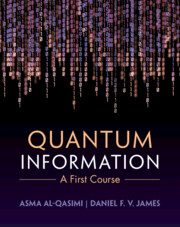Machine Learning in Quantum Sciences
Artificial intelligence is dramatically reshaping scientific research and is coming to play an essential role in scientific and technological development by enhancing and accelerating discovery across multiple fields. This book dives into the interplay between artificial intelligence and the quantum sciences; the outcome of a collaborative effort from world-leading experts. After presenting the key concepts and foundations of machine learning, a subfield of artificial intelligence, its applications in quantum chemistry and physics are presented in an accessible way, enabling readers to engage with emerging literature on machine learning in science. By examining its state-of-the-art applications, readers will discover how machine learning is being applied within their own field and appreciate its broader impact on science and technology. This book is accessible to undergraduates and more advanced readers from physics, chemistry, engineering, and computer science. Online resources include Jupyter notebooks to expand and develop upon key topics introduced in the book.
- Accessible to readers without prior knowledge of machine learning
- Readers will be equipped with the tools to engage with emerging literature
- Online resources include coding exercises in the form of Jupyter notebooks for self-study of key topics in the book
Product details
April 2025Adobe eBook Reader
9781009504928
0 pages
Not yet published - available from April 2025
Table of Contents
- Preface
- Acknowledgments
- List of acronyms
- Nomenclature
- 1. Introduction
- 2. Basics of machine learning
- 3. Phase classification
- 4. Gaussian processes and other kernel methods
- 5. Neural-network quantum states
- 6. Reinforcement learning
- 7. Deep learning for quantum sciences-selected topics
- 8. Physics for deep learning
- 9. Conclusion and outlook
- A. Mathematical details on principal component analysis
- B. Derivation of the kernel trick
- C. Choosing the kernel matrix as the covariance matrix for a Gaussian process
- References
- Index.



